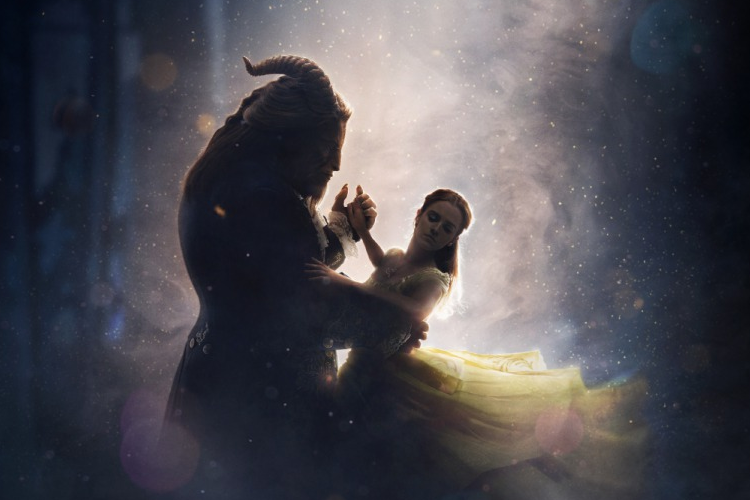Thank the movie gods. Wonder Woman isn't just good, it's amazing.
No longer waiting on the sidelines, director Patty Jenkins dives into the origin story of the Amazonian goddess Diana Prince (Gal Gadot). As a daughter of Zeus molded out of clay, Prince was born on a paradise island Themyiscra populated by female warriors and hidden from the modern world. Though shielded from mankind's penchant for destruction, she trained for the day when another war would arise. When trouble swings by in the form of spy-pilot Steve Trevor (Chris Pine) revealing humanity's fate in the midst of World War I, Prince departs from her homeland to put an end to the brutality.
Blending an origin fable and fish out of the water into an empowering warrior, Prince is the heroine of her story. Told through a splendid cast, deep well-rounded script, and sharp direction, Wonder Woman blazes a trail for superheroes and movies in general.
Leading the movie with ease, Gadot in the titular role is absolutely effervescent. It's not just the inspiring qualities her character possesses which makes her so damn lovable and invigorating, it's the actress's innate ability to be funny, endearing and bad-ass. Critics might point out her sheer beauty as an asset to play this icon, which she is, but her performance is everything Wonder Woman's reputation is based on: graceful, courageous, animated, and wise. As natural as it is for Chris Evans to don Captain America's shield or George Reeves to don Superman's cape, Gadot was made to wield the Lasso of Truth.
Her performance is aided by a glorious script which gifts Prince with the hero-myth treatment typically reserved for male protagonists of any genre. By her looks, personality, and prowess, she might be labeled as perfect, but Prince's beliefs grow and shift; she's confident as well as doubtful; her empathy is a virtue but a liability; she's human as much as she is a goddess. As much as we are obsessed with superheroes, their humanity makes them relatable. And to superheroes, humans are their way into understanding their purpose. Impressively, she journeys from a young girl holding onto glorified idea of combat to an idealist struggling to understand humans less-than-kind motivations, to a matured super warrior. In the midst of such an ugly world filled with death and destruction, she is a source of love, sacrifice, and compassion as an agent of good. It's impossible to not walk away feeling like you've witnessed an incredible transformation. AKA THE FEELS.
In light of the ridiculous backlash to the women's only screening, and the complete ignorance that women and people who identify as women, in general, aren't as worthy as men, Wonder Woman is an acceptable example of feminism, and what it can look like in the world, especially movies. Equality is not the irrational idea of opportunities being taken advantage of at the expense of others; it's women and minorities moving into open spaces that are, by default, possessed by men. It's offering everyone the ability to identify with characters in all of their glory and flaws; who are fully dimensional and well-rounded; showing a woman can take the lead with confidence and not to feel belittled or others to feel less than; for a man to not always be in control. Though it definitely could've had more diverse representation, the legacy of the comic books and television series lives on, no doubt making women's dreams come true on the big screen.
Prince wouldn't be as impactful if it wasn't for the supporting players backing her up all the way, whether their screentime is limited or lengthy. For the former, Connie Nielsen and Robin Wright as mother and aunt, respectively, set Prince on her path of valor and warmth. They're protective, loving, and ruthlessly skilled in combat. For the latter, Pine as Trevor is aware he's there to support Gadot but also be her leading man, and melds wonderfully opposite Gadot. Their friendly banter grows seamlessly into a sweeping romance, building a perfection combination of ying-yang, head vs heart, cynical vs optimistic, but bonded in their resolve to do right in spite of unspeakable horrors. Prince might be holding the reigns, but she doesn't do it alone.
Wonder Woman, both the character and the movie, comes along at a time where inclusiveness is being lost to hate and putting 'the other' in their imaginary place at the bottom of the totem pole. It's the superhero movie we didn't just deserve, but wholeheartedly needed. Her kindness, strength, determination, and power is a symbol for everyone who identifies with their sheer humanity. The story itself has a great equal pace, drawing parallels to another origin film Captain America: The First Avenger, which encourages the little guy towards a destiny greater than himself; where their heroics have to find a balance to the evil some people are capable of. Mixing action, humor, and romance, Jenkins makes the superhero movie fun again, more focused on the adventure than dropping easter eggs and tying franchises together. Jenkin's tough, funny, smart, and powerful flick possesses the power to make us all heroes just like Diana Prince: compassionate, curious, brave, and bad-ass; to own who we are and to believe in each other. At the end of the day, we're all in this together.
Rating:★★★
Have you seen Wonder Woman?
What did you think?





